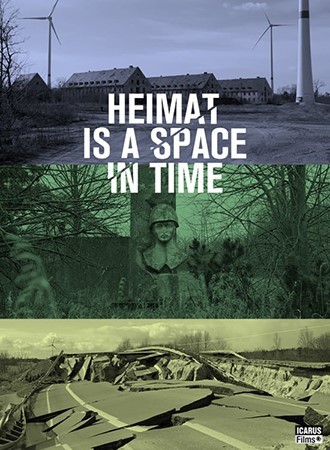
Heimat is a Space in Time 2019
Distributed by Icarus Films, 32 Court St., 21st Floor, Brooklyn, NY 11201; 800-876-1710
Produced by Heino Deckert
Directed by Thomas Heise
Streaming, 218 mins
Biography; Experimental Film; Family; History; Time; War
Date Entered: 07/22/2020
Reviewed by Linda Frederiksen, Washington State University, Vancouver, WA (retired)Loosely translated, ‘heimat’ means home or homeland. For filmmaker Thomas Heise, that home is Germany. His purpose to try to answer the question of what it means to be German. The film opens with a slow pan to a forest signpost reading “According to legend, here stood grandmother’s house.” A brief color montage featuring characters from Little Red Riding Hood follows before the five-chapter visual essay begins in earnest. Using letters, diaries, and other documents and artifacts from four generations of his own family as the background narrative, Heise traces a century of conflict and war beginning with the anti-war notes of a 14-year written in 1912. The film proceeds through the difficult days following World War I, the rise of fascism, World War II, and the Cold War, setting the personal stories of family members next to archival documents and places both past and present where the events beginning described occur.
The film is visually stunning and many of the juxtapositions are deeply affecting, particularly a slow 24-minute camera crawl over the names of concentration camp victims while letters from relatives are read as the situation in Germany and Austria worsens. Likewise, the thoughts of Heise’s family members read out against barren and desolated landscapes where past horrors occurred are both thoughtful and evocative. Other sections of the 3 ½ hour essay are less moving. For those lacking a detailed understanding of recent German history (and especially that of the Soviet era) and with no surrounding or supporting context, many of the visual and auditory references will be lost by viewers. Similarly, lengthy discussions of German political philosophers and theorists as well as extended shots of trains traveling through the countryside adversely bog down the narrative. At some point, the personal simply becomes tedious.
Recommended with reservations for film studies and European history courses.
Awards:
Best Documentary, German Film Critics Awards 2020